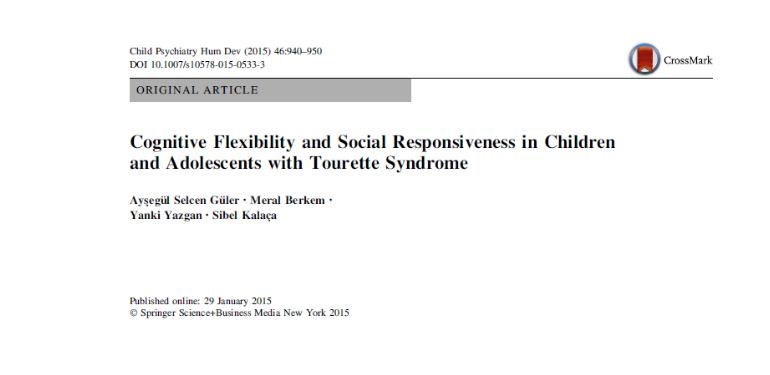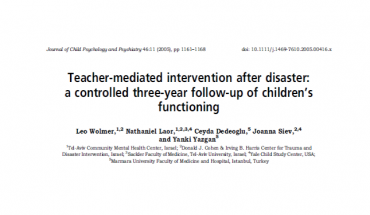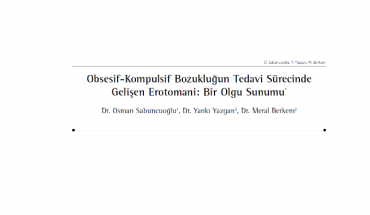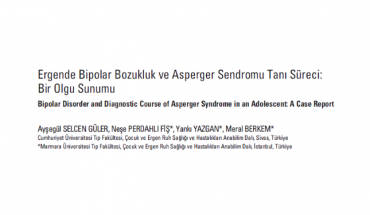Abstract
This study examined cognitive flexibility and social responsiveness in children and adolescents with Tourette Syndrome (TS). Thirty one subjects with TS were compared to 32 age-matched healthy controls. Assessments included semi-structured interviews to assess psychopathology, parent-rated Social Responsiveness Scale (SRS) and a brief neuropsychological battery selected as measures of cognitive flexibility. Completion time for both Trail Making Tests (TMT-A and TMT-B) were significantly longer for TS group than controls, however the difference in perseverative errors on Wisconsin Card Sorting Test (WCST) was not significant. SRS total score was significantly higher in the TS group compared to controls, indicating greater impairment in social responsiveness. Group difference for TMTs and SRS failed to reach significance after controlling for co-occurring conditions. Clinicians might consider social impairment in the evaluation plan of children and adolescents with Tourette syndrome
Keywords: Tourette syndrome, Cognitive flexibility, Social responsiveness, Children, Adolescent




